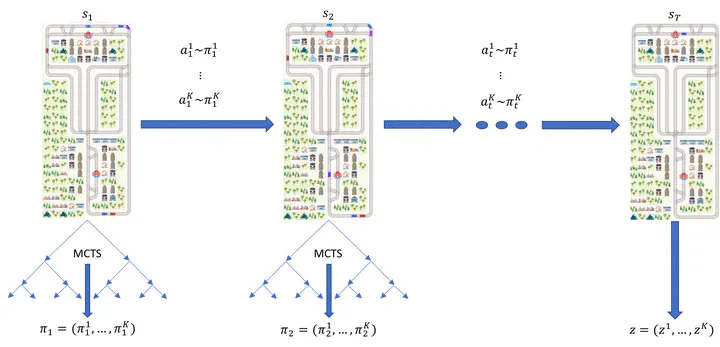Real-time railway (re-) scheduling without human-expert knowledge
May 18, 2022·
 ,
,
,
,
,
,
·
0 min read
,
,
,
,
,
,
·
0 min read
M. Jusup
J. Kirschner
T. Birchler
S. Curi
I. Bogunovic
A. Krause
F. Corman

Abstract
Practitioners and researchers have been developing expertise to generate train schedules since the railway came into existence. Here we motivate an approach that does not require human-expert knowledge and has the capability to adapt to the new scheduling requirements out-of-the-box. The requirements encompass assigning the initial and/or target station, as well as the earliest departure and/or latest arrival time for multiple trains. Our multi-agent reinforcement learning model uses self-play to learn how to dynamically generate train trajectories consisting of the departure times from the initial station and online paths generation leading to the target station within a railway network. We train a deep neural network which at each timestep predicts train actions and a measure of schedule feasibility. This neural network increases the quality of a Monte-Carlo tree search, resulting in better train actions during the next self-play iteration. We show that our model can reason about the shortest paths whenever it leads to a feasible schedule. Furthermore, in the instances where the shortest path solution causes train collisions, our model shows the ability to avoid them and navigate the trains to the feasible solution.
Type
Publication
STRC 2022 (Oral)